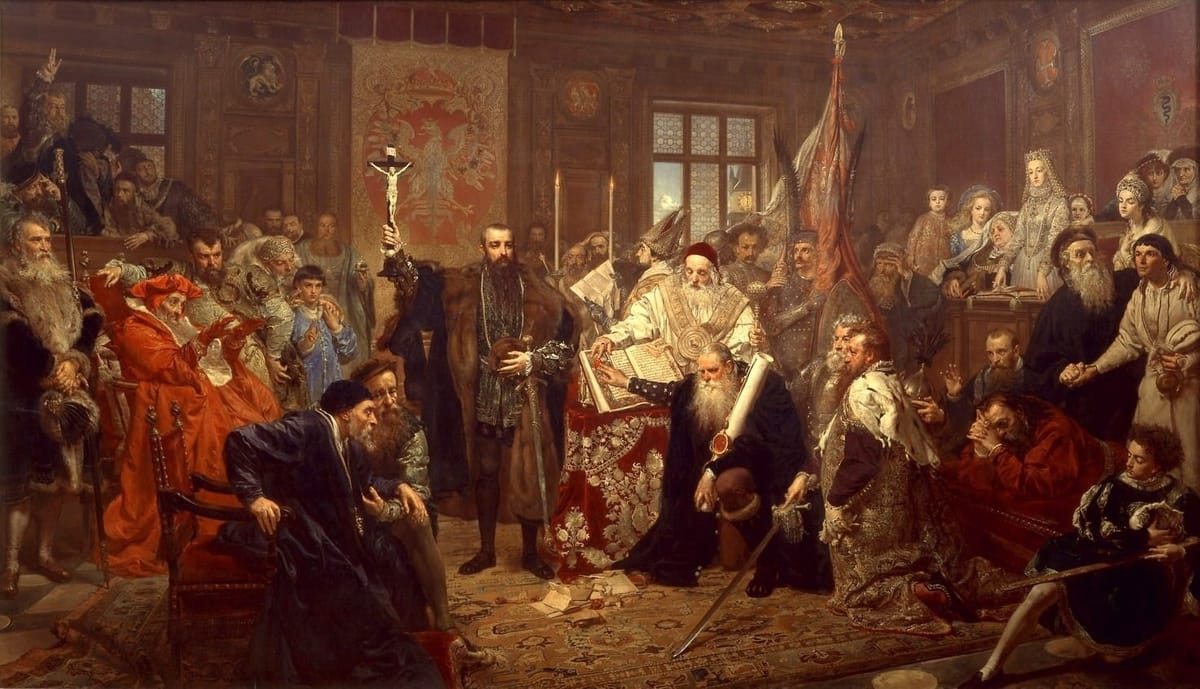The Bridge That is Never Finished
The work of liberty is never complete. It must be remade in every generation—through conscience, dialogue, and restraint. A society’s maturity lies not in the absence of conflict, but in the art of building bridges that hold amid difference.

“I can only answer the question ‘What am I to do?’ if I can answer the prior question ‘Of what story or stories do I find myself a part?’”
—Alasdair MacIntyre, After Virtue (1981)
Freedom is never complete, never settled. It is a bridge built in tension—spanning discord without erasing it, holding voices together without silencing their difference. To cross it is to accept that liberty is always an unfinished work, sustained by dialogue, courage, and conscience.
Concordia Discors—harmony through discord— names both the conviction and the wager of our magazine. Freedom is not sustained by utopias or uniformity, but by the arduous art of living with difference. Human life is plural, often clashing, never complete; yet it is precisely in this tension—this unfinished dialogue—that liberty endures. To defend freedom today means not only resisting tyranny but also bridging the divides of our polarized age.
To defend freedom today means not only resisting tyranny but also bridging the divides of our polarized age.
We stand within what we call the Literature of Liberty: a tradition of thinkers, artists, and witnesses who defended conscience against coercion and plurality against the flattening force of ideology. Isaiah Berlin warned against the seductions of monism; Leszek Kołakowski traced the long road from Marxist faith to the critique of utopia; Hannah Arendt sought light in the ruins of totalitarianism; Aleksandr Solzhenitsyn testified to moral courage in the Gulag; John Paul II defended the dignity of the person; Raymond Aron combined clarity with restraint. They did not all agree—indeed, their disagreements are what make them indispensable. Together, they remind us that freedom is fragile, threatened not only by tyranny but by apathy, fanaticism, and conformity.
They did not all agree—indeed, their disagreements are what make them indispensable. Together, they remind us that freedom is fragile, threatened not only by tyranny but by apathy, fanaticism, and conformity.
We know the charge sometimes leveled against such projects: that they are nostalgic, Eurocentric, or too enamored of “great thinkers.” We take the criticism seriously. But our answer is simple: liberty has always required a chorus of voices—from every culture—and it always will. The canon we draw upon is not a citadel but a bridge: open to challenge, expansion, reinterpretation.
What you will find here
Our essays cross traditions, disciplines, and frontiers.
They range from the quarry poems of Karol Wojtyła, the defiance of Polish-Romani poet Papusza, and the philosophical pilgrimages of Norwid and Kołakowski, to Alasdair MacIntyre’s moral inquiries and Dag Hammarskjöld’s meditations on vocation and service. We turn as well to the dilemmas of technology, the fractures of global institutions, and the cultural battles that shape civic life.
Each exploration circles the same questions:
Why does culture matter for liberty?
Why does truth resist power?
And how, in an age of polarization, can societies sustain dialogue without dissolving into relativism or rage?
What we stand for
Conscience before power.
Pluralism with courage.
Culture as resistance.
Bridging polarization.
Truth that persuades.
We do not pretend to offer the last word. What we seek is a space where freedom and conscience are worked out together—critically, creatively, and without fear.
Think Beyond Tribes | Liberty • Conscience • Pluralism | Concordia Discors Magazine | 𝕏
“The real test of a man is not how well he plays the role he has invented for himself, but how well he plays the role that destiny assigned to him.”
—Václav Havel, Disturbing the Peace (1986)
